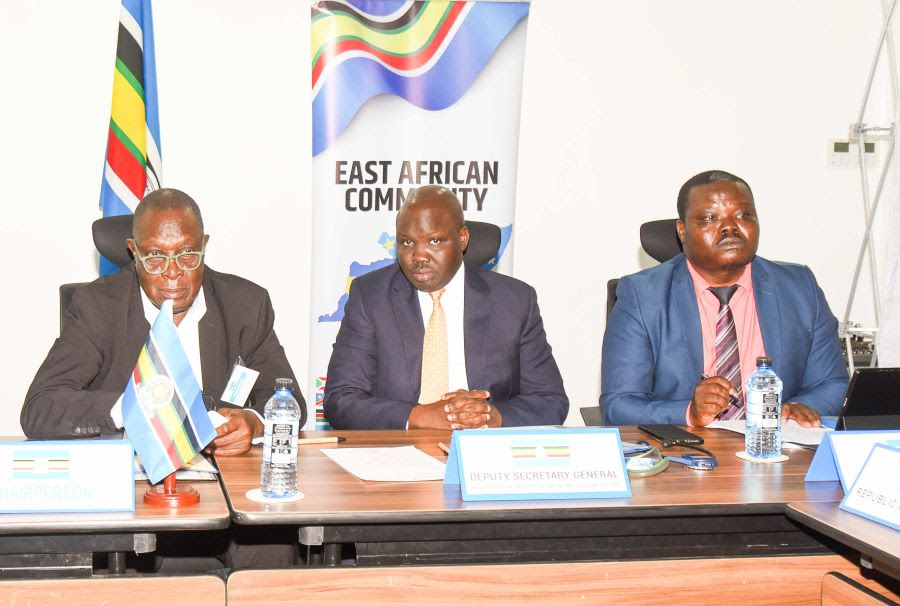

East African Community Headquarters, Arusha, Tanzania, 22nd October, 2024: The 19th Meeting of the East African Community (EAC) Sectoral Council on Transport, Communications and Meteorology is currently underway in Mombasa, Kenya with the liberalisation of the Upper Airspace and reduction of air fares in the region high on the agenda.
Also on the agenda of the five-day meeting are the consideration of the status of regional progarammes and projects under the railways, roads, maritime, communications and meteorology sub-sectors.
Speaking during the opening session of the meeting, the EAC Deputy Secretary General in charge of the Infrastructure, Productive, Social and Political Sectors, Hon. Andrea Aguer Ariik Malueth, said that the move by the Community towards a seamless airspace is a significant step with the completion of Phase one, which will enable inter-operability of the air navigation systems in the region.
Partner States are already in agreement to operationalise the EAC Upper Airspace Seamless operations to enable inter-operability of their upper air navigation systems.
The Upper Air Space is that space above Flight Level (FL) 245 (24,500 feet). Article 92 (3e) of the Treaty for the Establishment of the EAC states that Partner States shall “establish a Unified Upper Area Control system.’
Liberalisation of air transport services within the region means that nationally registered carriers will be allowed to operate freely within the EAC region.
Hon. Ariik, who represented EAC Secretary Hon. General Veronica Nduva at the meeting, urged Partner States to move with speed to complete the remaining phases to ensure the full liberalisation of the air transport sector in the region.
“We commend Partner States for continuing with the improvements to the airports infrastructure and note that several projects are either planned or ongoing. These include international airports at Hoima, Dodoma, Bugesera, Melchior Ndadaye, Juba and N’djili. We particularly congratulate South Sudan for developing their Civil Aviation Act which now awaits Cabinet approval,” said Hon. Ariik.
“The region is also making progress towards reducing air fares and countries continue to present their views on this issue, which we hope to conclude soon. Related to this, the Single African Air Transport Market (SAATM) being promoted at the African Union level will further ensure that air travel within the continent is made easier,” he added.
The DSG, however, said that so far, only three countries in our region have joined the SAATM and urged the remaining countries to expedite the process of joining this important facility.
On maritime transport, Hon. Ariik said that whereas sea maritime transport is doing very well, the region’s inland waterways are only minimally being utilised.
“This has resulted in a lot of pressure on our road transportation systems, yet maritime transport is far more efficient, cost effective and climate friendly. However, apart from lack of sufficient investment in the equipment, a lot needs to be done to improve maritime safety,” said the DSG.
Hon. Ariik commended the Partner States for their relentless push to actualise the East African Railways Network connected through the standard gauge railway and hailed the United Republic of Tanzania for the recent launch of services between Dar es Salaam and Dodoma.
The DSG said that to achieve seamless connectivity of the railway system, Partner States need to build synergy in resource mobilisation to ensure there are no gaps that would render the programme ineffective.
“Concurrently, efforts must also be put in the development of an inter-modal transport system, in particular maritime transport, to support the SGR programme. In this regard, the need for a regional maritime transport policy and strategy become pertinent,” he said, adding that the Sectoral Council will discuss these matters in detail.
On the communications sector, DSG Ariik informed the meeting that the Republic of Burundi and the United Republic of Tanzania have since joined the EAC One Network Area, signalling a new era in the region’s push towards the digital economy.
“We urge the other countries to onboard the two new members in order to make the roaming framework fully effective. Countries are also called upon to support the Eastern Africa Regional Digital Integration Project, which aims to advance digital market integration in the Eastern Africa region by increasing affordable access to regional broadband connectivity and strengthening the enabling environment for cross-border digital services,” said Hon. Ariik.
“We need to remove barriers to regional telecoms infrastructure and services and expand access to connectivity if our region is to remain competitive in the global arena,” he added.
On meteorology, Hon. Ariik said that there is urgent need for the region to appropriately equip itself with automatic weather stations and to adopt quality management systems, the ISO 9001:2015 for Aeronautical Meteorological Services, in order to cope with climate change and improve safety of air transport.
“The modernisation of meteorological services also depends on the institutional frameworks and currently, only three countries have autonomous agencies responsible for meteorological and hydrological services. It is important that the region moves as one in this respect,” he said.
Hon. Ariik disclosed that the participation of Partner States in the programmes of the International Civil Aviation Organization is poor. As an example, the volcanic ash exercises prepare the region for events such as happened in Iceland some years back when the entire airspace in the Northern Hemisphere was covered in volcanic ash.
The Session of Senior Officials which runs from Monday, 21st – Wednesday, 23rd October, 2024 is being chaired by Captain Subek David Dada, the CEO of the South Sudan Civil Aviation Authority. The Session of Senior Officials will be followed by the Coordination Committee that consists of Principal/Permanent/Under Secretaries on Thursday, 24th October, 2024 and the Ministerial Session on Friday, 25th October, 2024.
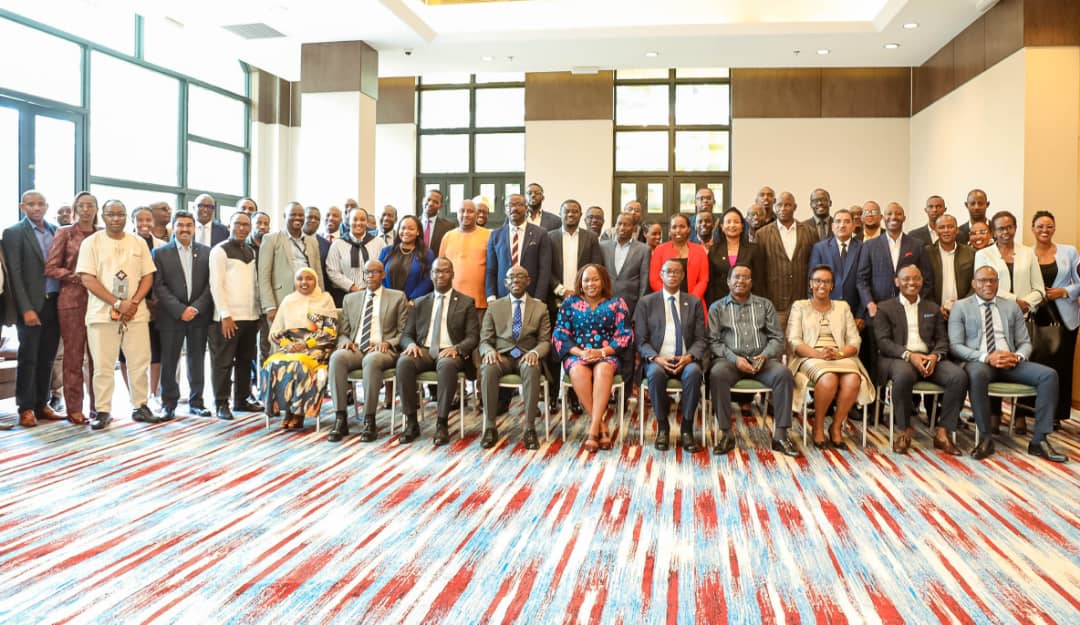

Monday, 15th November 2024,– The EABC CEOs-EAC Secretary General Meeting in Rwanda held on 11th November 2024, has declared a commitment to boost intra-EAC trade to 40% by 2030 and Rwanda trade and investment ties with counterparts.
The meeting, held under the theme "Enhancing Competitiveness in the EAC: Addressing Barriers and Leveraging Opportunities in Regional Integration," was organized by the East African Business Council (EABC) in partnership with the Private Sector Federation – Rwanda (PSF-R) and the East African Community (EAC).
In her address, H.E. Veronica Nduva, EAC Secretary General, highlighted that the EAC Heads of State have set an ambitious and achievable target to increase intra-EAC trade from 15% to 40% by 2030. She urged the private sector to promote the EAC as a unified trade bloc, emphasizing that regional benefits outweigh national interests, with the EAC's market of 312 million being far larger than individual national markets.
Hon. Gen (Rtd) James Kabarebe, Minister of State for Foreign Affairs in charge of Regional Cooperation, Rwanda, reiterated the commitment of EAC Heads of State to the integration agenda. He pledged to secure the progress made and to address the setbacks to intra-EAC trade and investments.
Mr. Dennis Karera, Vice Chairperson of EABC, stated that this meeting of the private sector, EAC Secretary General, the Minister of Trade and Industry, and the Minister of State for Foreign Affairs in charge of Regional Cooperation has resulted in a declaration outlining practical recommendations to move from rhetoric to action. “Our shared goal is to increase intra-EAC trade and strengthen Rwanda’s trade and investment ties with other EAC Partner States,” he said.
Hon. Prudence Sebahizi, Minister of Trade and Industry, Rwanda, reiterated the government’s commitment to partnering with the private sector in driving EAC integration. He emphasized the need to improve production and exports to meet regional, continental, and international market demands of goods and services.
In 2023, the total global merchandise trade by the EAC grew by 2.37%, reaching over US$80 billion, with intra-EAC trade growing by 13.1% to US$12.1 billion. Rwanda’s total trade grew by 20.3%, demonstrating the positive impact of ongoing reforms aimed at streamlining trade and improving market access.
This year the EAC is marking 25 years. The EAC has introduced several initiatives, including the e-Tariff toolkit and trade information portals, which provide the private sector with access to tariff structures and step-by-step guides on licenses, permits, and procedures for goods moving in and out of the region. Furthermore, the EAC has harmonized over 1,920 product standards across 80 sectors. The EAC’s Industrialization Policy aims to increase the manufacturing sector’s contribution to GDP from 8.9% to 25% by 2032.
H.E. Veronica Nduva praised the Government of Rwanda, under the leadership of H.E. President Paul Kagame, for hosting the second edition of the Biashara Africa AfCFTA Business Forum in Kigali. Under President Kagame’s patronage, the establishment of the world’s largest free trade area, the AfCFTA, began in March 2018 with the signing of the agreement in Kigali.
The Secretary General noted that AfCFTA presents opportunities for EAC Partner States to leverage the continental market, build regional industrial value chains, and increase intra-Africa trade.
The meeting brought together 150 business leaders and government officials from Rwanda, including members of the National Parliament, Permanent Secretaries from ministries, and the Director General of the Rwanda Revenue Authority, to discuss challenges, opportunities, and solutions to scale up intra-EAC trade and investments. Land-linked countries face unique challenges in capitalizing on the benefits of regional integration.
Discussions and presentations during the meeting focused on the liberalization of air transport services, transport and logistics, manufacturing, tourism, and the movement of services and service providers. Key matters deliberated included the digital economy, upgrading transport networks, energy, road user charges, discriminatory levies and charges, stays of applications, work permits, and the One Tourist Visa, East African Payments System (EAPS), Single Africa Airt Transport Market Agreement among others.
The meeting convened industry leaders, including Mr. John Bosco Rusagara, EABC Board Member, Ms. Linda Kalimba, EABC Board Member, Mr. Stephen Mbundu, EABC Chairperson Emeritus, Ms. Yvonne Makolo, CEO of RwandAir, Mr. Abdoul Ndarubogoye, President of the Long Distance Truckers Association, Mr. Yves Ngenzi, Chamber of Tourism-Rwanda, Mr. David Rwigema, Chairman of Rwanda Freight Forwarders Association (RWAFFA), and Mr. Adrian Njau, Acting Executive Director of EABC.
About the East African Business Council:
The East African Business Council (EABC) is the regional apex body of private sector associations and Corporates from the 8 East African countries. It was established in 1997 to foster the interests of the private sector in the integration process of the East African Community. EABC vision is a borderless East Africa for business and investment. The primary mission is to promote sustainable private sector-driven growth in the EAC. www.eabc-online.com
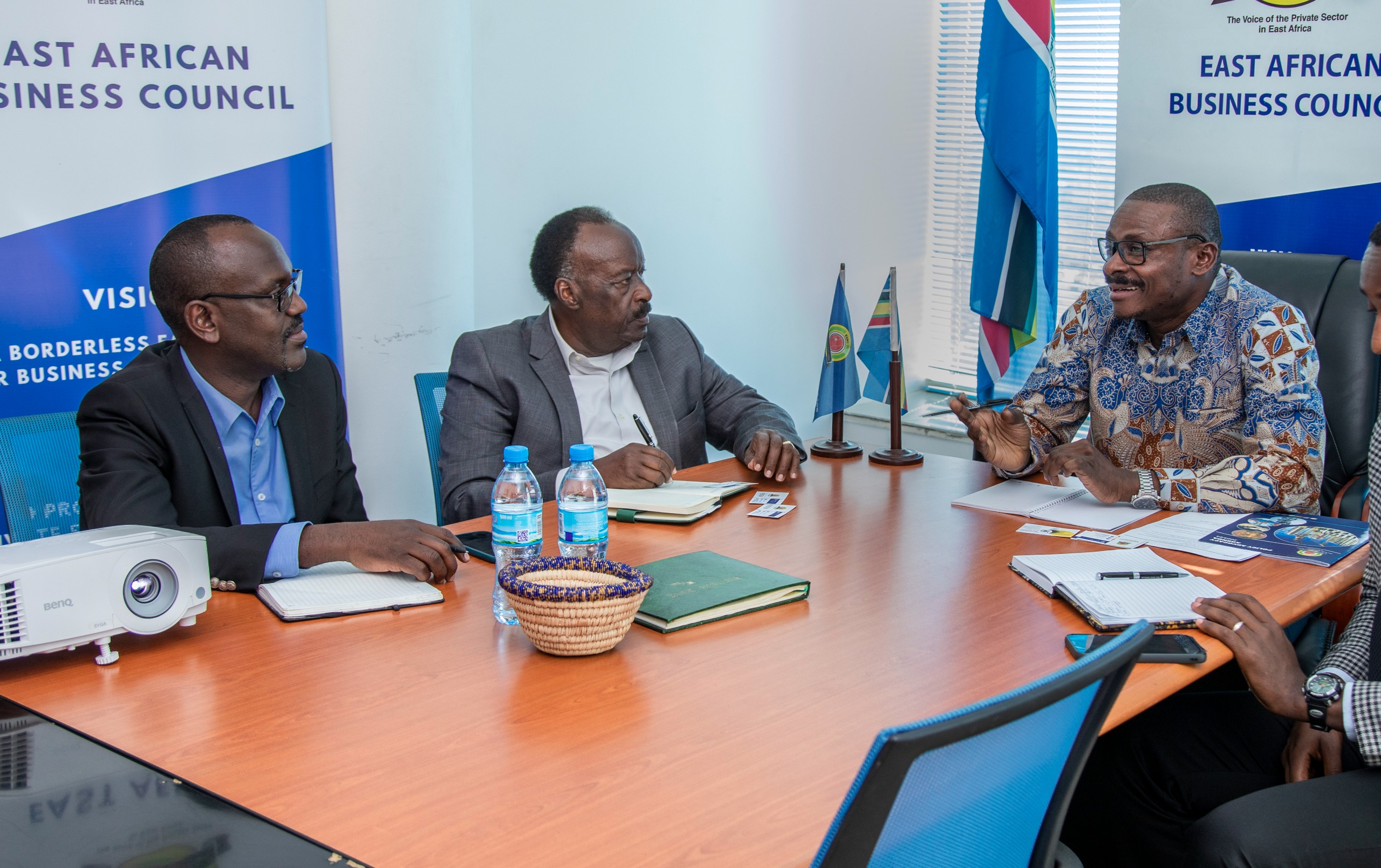

Arusha, Tanzania, Saturday, 7th September 2024 – H.E. Amb.Col (Rtd) Fred Mwesigye, High Commissioner of the Republic of Uganda to Tanzania, Zambia, Mozambique, Malawi, Comoros, Madagascar, and Permanent Representative to the East African Community (EAC) and the Common Market for Eastern and Southern Africa (COMESA), held talks with East African Business Council (EABC) Acting Executive Director Adrian Njau on boosting trade and investment ties between Uganda and its counterparts in the East African Community (EAC).
Speaking on the importance of fostering trade ties, the High Commissioner said, "If you can’t trade, you can’t prosper."
He emphasized the importance of developing transport and logistics infrastructure to enhance trade linkages in EAC countries and across the continent, for businesses to benefit from the African Continental Free Trade Area (AfCFTA) Agreement.
In his remarks, Mr. Adrian Njau stated that EABC is at the forefront of championing evidence-based policy advocacy to foster a conducive environment for businesses in the EAC region. He said according to International Trade Centre in 2023, Uganda’s total imports of goods from the world stood at USD 11.78 billion, while imports from the EAC were USD 2.22 billion. Uganda’s total goods exports to the world amounted to USD 6.3 billion, with exports to the EAC at USD 2.2 billion. The top import countries for Uganda were Tanzania and Kenya. Notably, in 2023, Uganda imported USD 1 billion worth of gold from Tanzania.
Mr. Njau highlighted said One Network Area for telecommunications, a single tourist visa, the free movement of persons using national IDs, and the adoption of the EAC Common External Tariff 2022 are tangible achievements of the integration process that benefit both citizens and businesses.
Mr. Njau pointed out that Non-Tariff Barriers (NTBs) and tariff barriers hinder the growth of intra-EAC trade, negatively impacting business by inflating transaction cost and make goods and services are uncompetitive. He noted that EABC has engaged with the Ministry of Agriculture and Livestock Development of Kenya to ensure that the recent notice on stoppage of sugar importation into Kenya does not include brown/table sugar originating from other EAC Partner States and the Agriculture and Food Authority (AFA) of Kenya not to charge import levies on goods originating from EAC Partner States, as it contradicts Article 15 (National Treatment) of the Protocol on the Establishment of the EAC Customs Union.
Mr. Njau stressed that tax policies should not act as discriminatory factors discouraging cross-border trade in goods or services within the EAC. He cited unharmonized tax structures, such as higher withholding taxes on non-resident -professional service providers from other EAC countries-render them uncompetitive.
He called for the ratification of the EAC Agreement for the Avoidance of Double Taxation and the amendment of Article 24(2) of the EAC Customs Union Protocol to establish the EAC Trade Remedies Committee. He also urged the swift amendment of the EAC Elimination of Non-Tariff Barriers Act, 2017, to bring it into full force. Mr. Njau added that the EAC Sectoral Council on Legal and Judicial Affairs should convene to resolve all legal pending issues at EAC.
Mr. Frank Dafa, Manager of Trade in Goods, EABC emphasized the importance of liberalizing air transport services within the EAC to boost aviation, tourism and reduce air-flight ticket costs. He also discussed the need to harmonize product standards, such as those for timber.
Other topics discussed during the meeting included organizing trade missions between East Africa countries, mapping of harvest seasons, the Tripartite Free Trade Area, engagement with the East African Legislative Assembly (EALA), capacity building for businesses on EAC and AfCFTA agreements, and private sector role in joint bilateral commissions between EAC Partner States.
Uganda's High Commissioner to Tanzania Holds Talks with EABC on Boosting EAC Trade and Investment
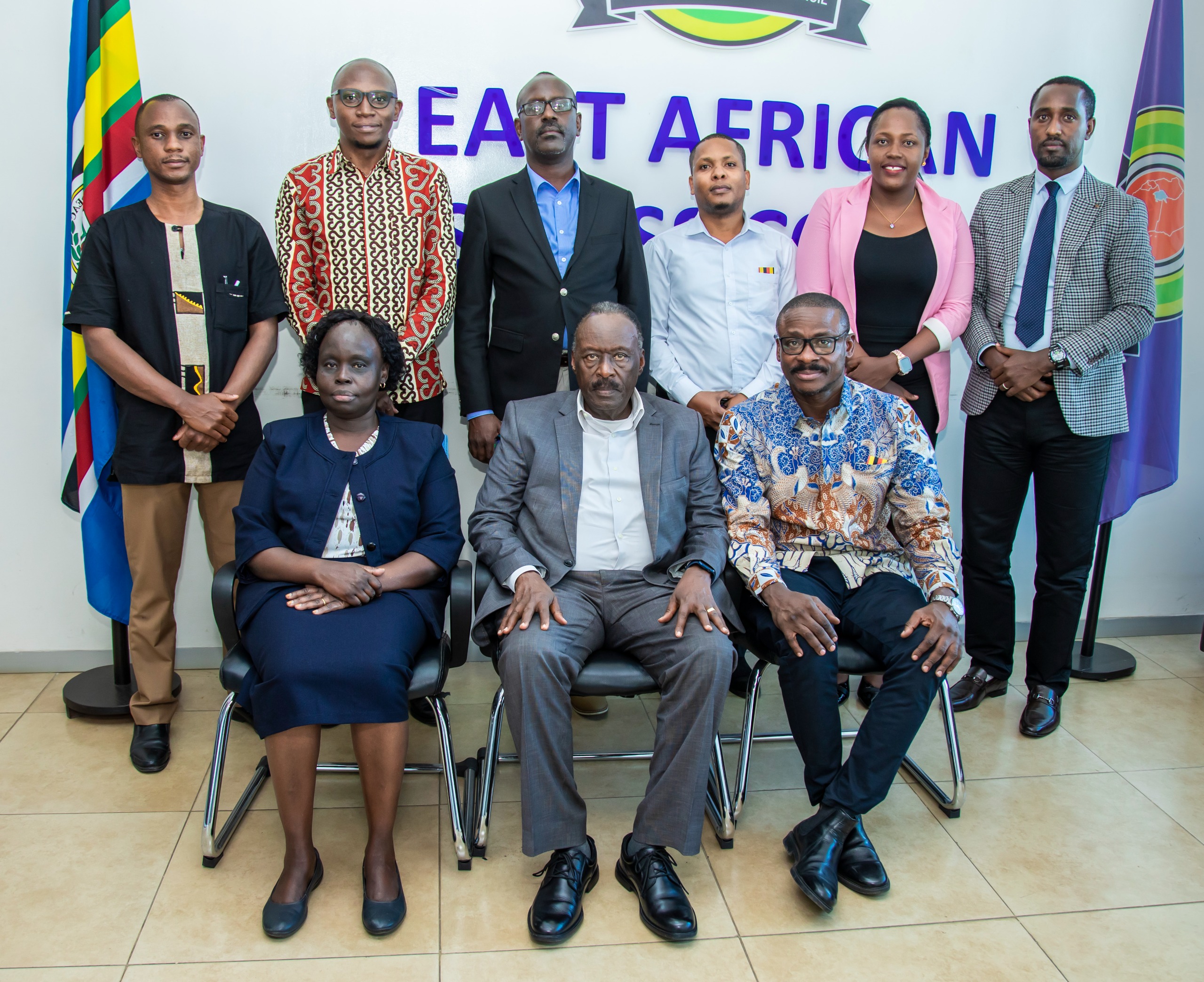

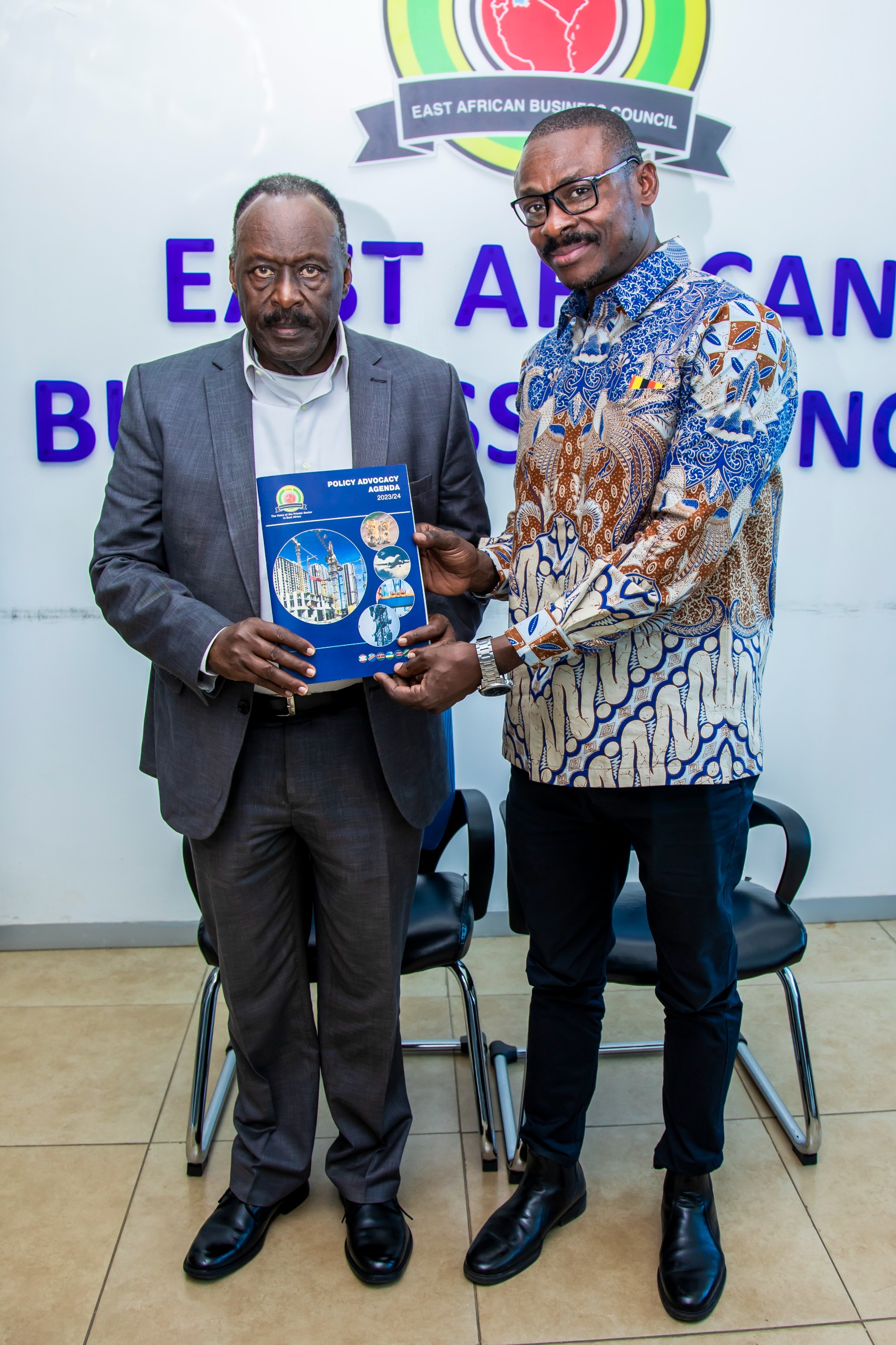

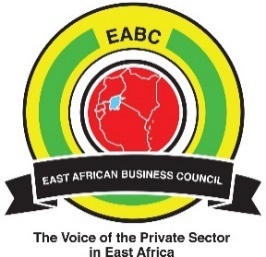

Thursday 29th August 2024 Kampala, Uganda: - Officiating the East African Community (EAC) – East African Business Council (EABC) Technical Working Group Meeting, EAC Deputy Secretary-General for Customs, Trade, and Monetary Affairs, Annette Mutaawe Ssemuwemba, urged private sector associations to develop joint calls to action to be presented to governments in an effort to boost intra-EAC trade and investments.
She commended EAC Secretary General H.E. Veronica Nduva for committing to hold discussions with the private sector at the country level and for engaging the EAC Sectoral Council on Legal and Judicial Affairs on pending trade and investment legal instruments.
The EAC Deputy Secretary-General further tasked the Technical Working Group to synthesize and analyze the advocacy priorities to inform the EAC policy decision-making organs, from technical to Heads of State level.
In his remarks, Mr. Rwabwogo Businge, EABC Board Member, commended the EAC-EABC Technical Working Group for developing the regional private sector policy advocacy priorities and a roadmap to address issues such as non-tariff barriers affecting intra-EAC trade.
Mr. Adrian Njau, Acting Executive Director of EABC, urged governments to fully implement the commitments of the EAC Customs Union and Common Market to allow businesses to flourish in the region. He also called upon national private sector associations to present regional issues during public-private dialogues (PPDs) at the national level, emphasizing that regional integration is actually implemented at the national level.
Mr. Martin Maku, representing the Executive Director of the Private Sector Foundation Uganda (PSFU), stated that the EAC-EABC Technical Working Group has been instrumental in addressing Uganda’s concerns regarding access to regional markets, such as NTBs, domestic taxes, and the Common External Tariff (CET).
The joining of Burundi and Tanzania into the One Network Area for telecommunications is one of the key achievements of the EAC-EABC Technical Working Group. The One Network Area has eliminated roaming charges for telecommunications, reducing the cost of doing cross-border business.
On his part, Mr. Lamech Wesonga, Economic Policy Advisor on AfCFTA for EAC-GIZ, reiterated GIZ’s commitment to work with the government and private sector to ensure policy issues are addressed to remove barriers to regional integration at both the EAC and continental levels. He explained that for proposals to be adopted and implemented, research, analysis, and stakeholder engagement are crucial.
Key issues of discussion by the Technical Working Group include: Non-Tariff Barriers, discriminatory taxes, Rules of Origin, illicit trade, anti-money laundering, EAC trade remedies, the EAC Single Tourist Visa, Duty Remission & Common External Tariff, standards and sanitary and phytosanitary (SPS) measures, liberalization of trade in services, mutual recognition of professionals, free movement of workers, liberalization of air transport services, continental and international trade agreements, transport and logistics, cross-border investments, infrastructure development, and the implementation of EAC commitments by the Republic of South Sudan, the Democratic Republic of the Congo, and the Federal Republic of Somalia.
Intra-EAC trade grew at 14% in 2023 recording USD 12.2 billion value of trade. In the same year the export of EAC to the Rest of the World was at record of USD 26.9 billion compared to USD 25 billion recorded in 2022 while export to Africa was USD 9.7 billion; and imports from Africa grew to USD 9.7 billion in 2022 up from USD 7.9 billion in 2023
The EAC-EABC Technical Working Group (TWG) Meeting convened representatives from National Private Sector Associations in Burundi, DRC, Kenya, Rwanda, South Sudan, Tanzania, and Uganda to analyze and review trade policy issues and craft action plans in a bid to increase intra and extra EAC trade and investments. The EAC-EABC Technical Working Group is co-chaired by EABC Executive Director and EAC Deputy Secretary-General: Customs, Trade, and Monetary Affairs.
Source : EABC Communications
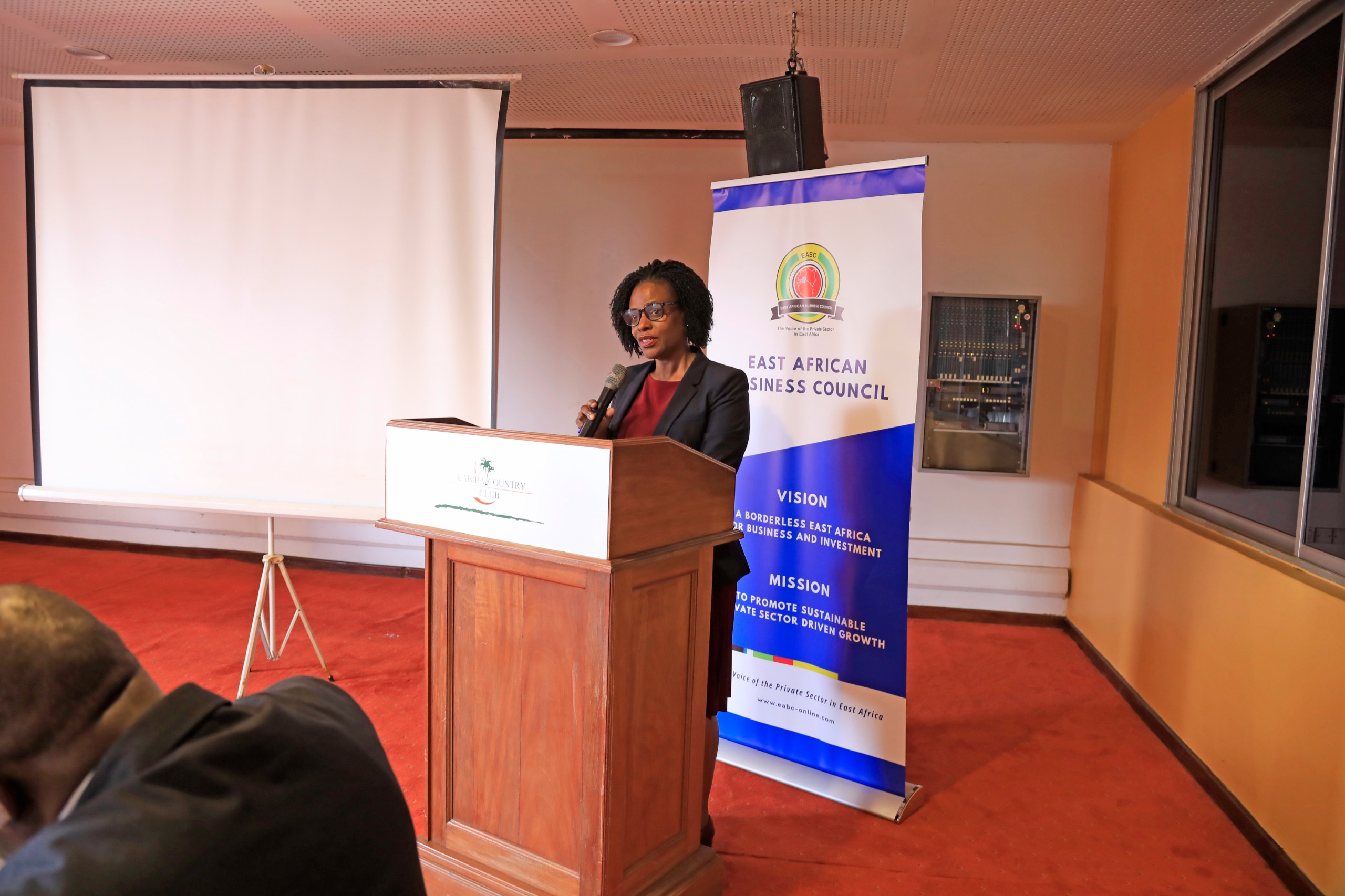

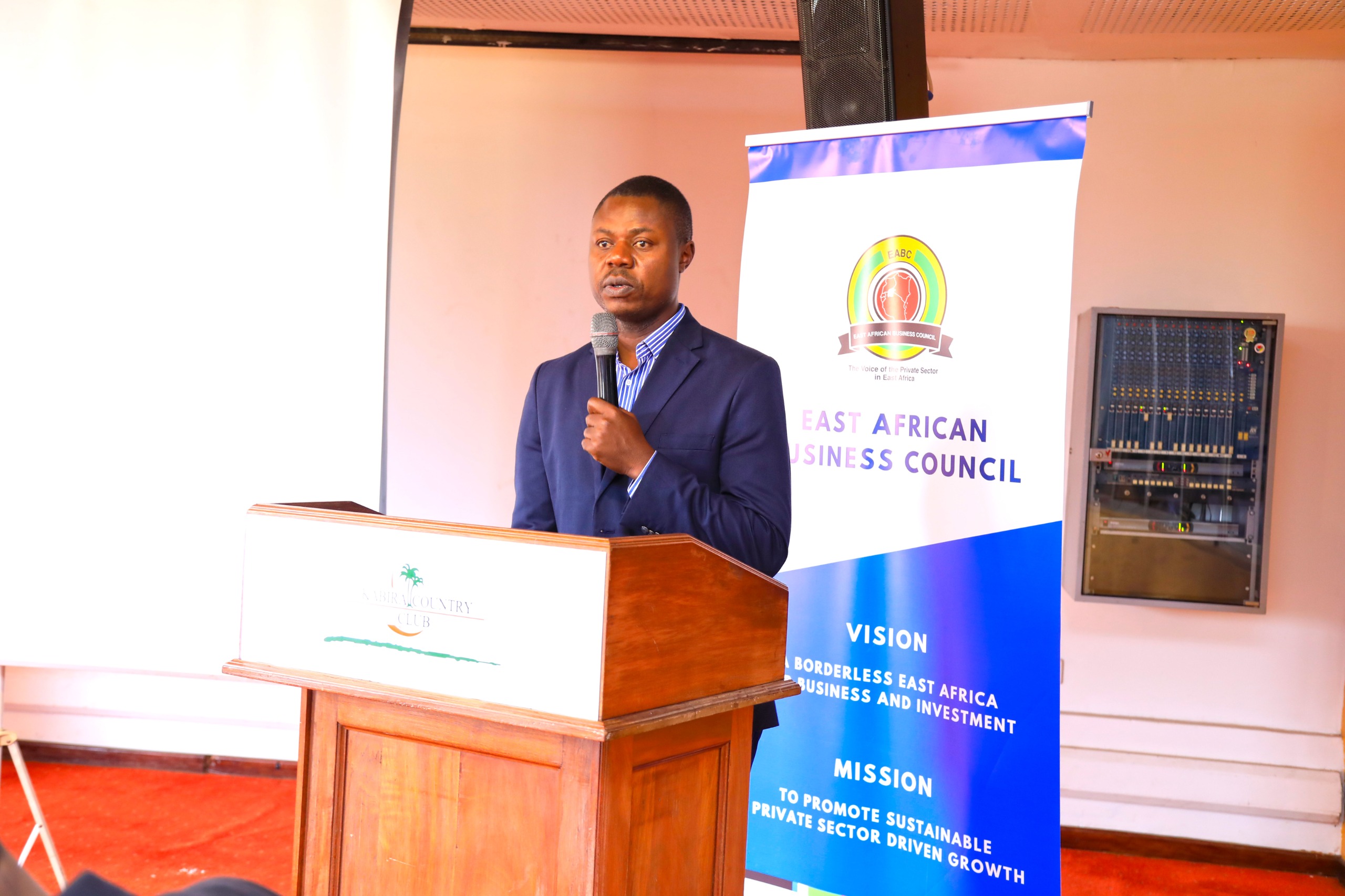

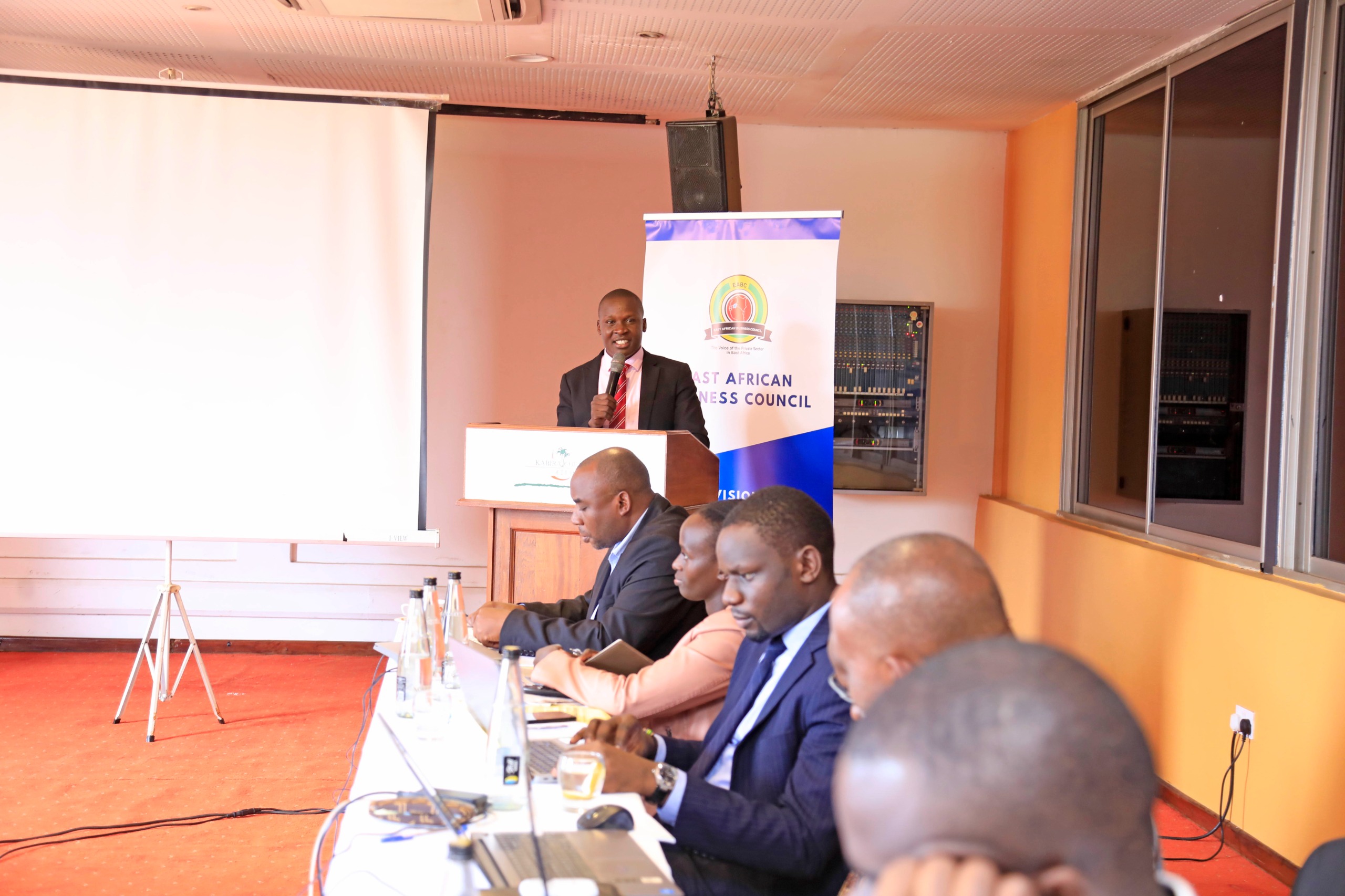

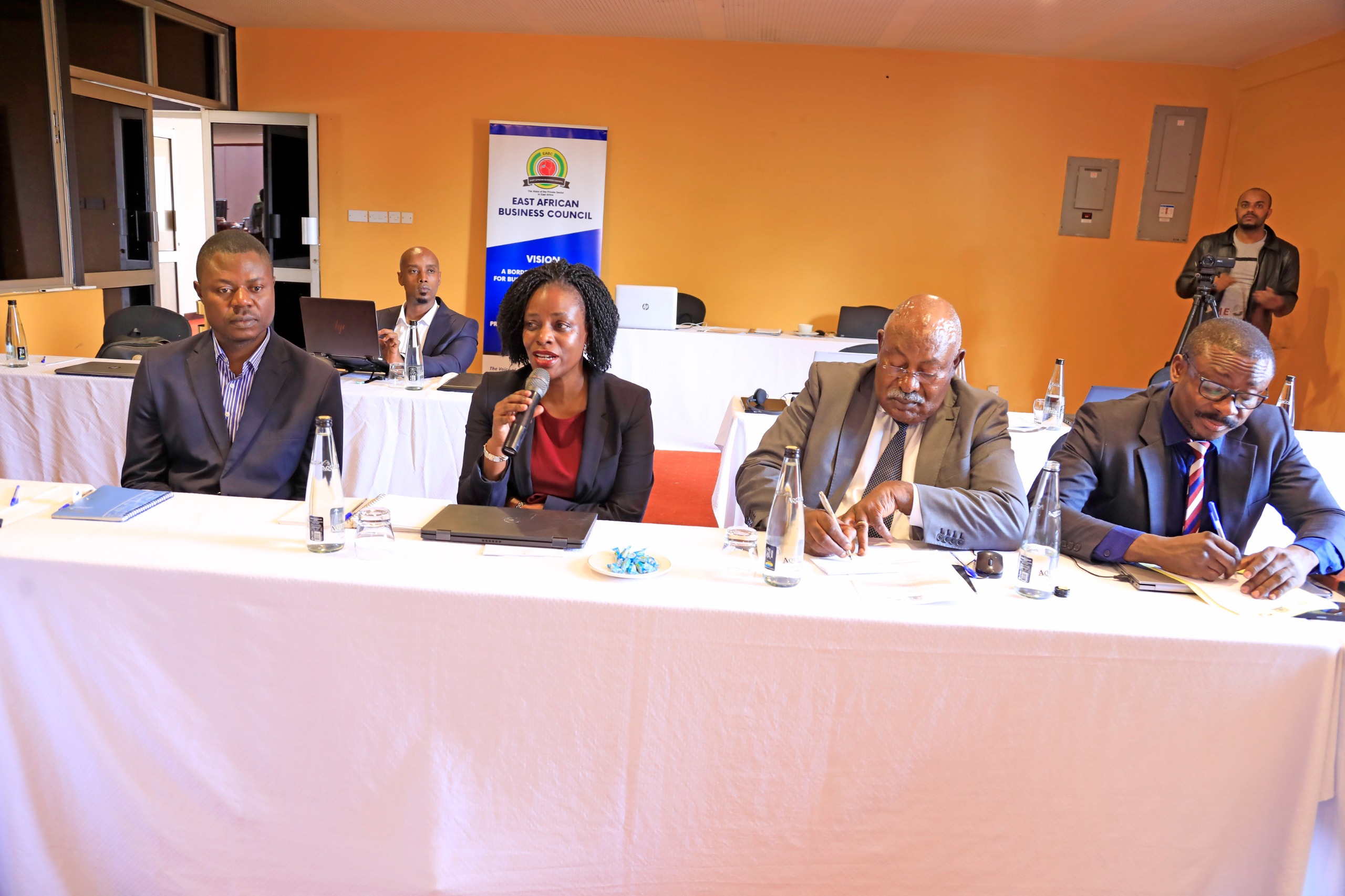

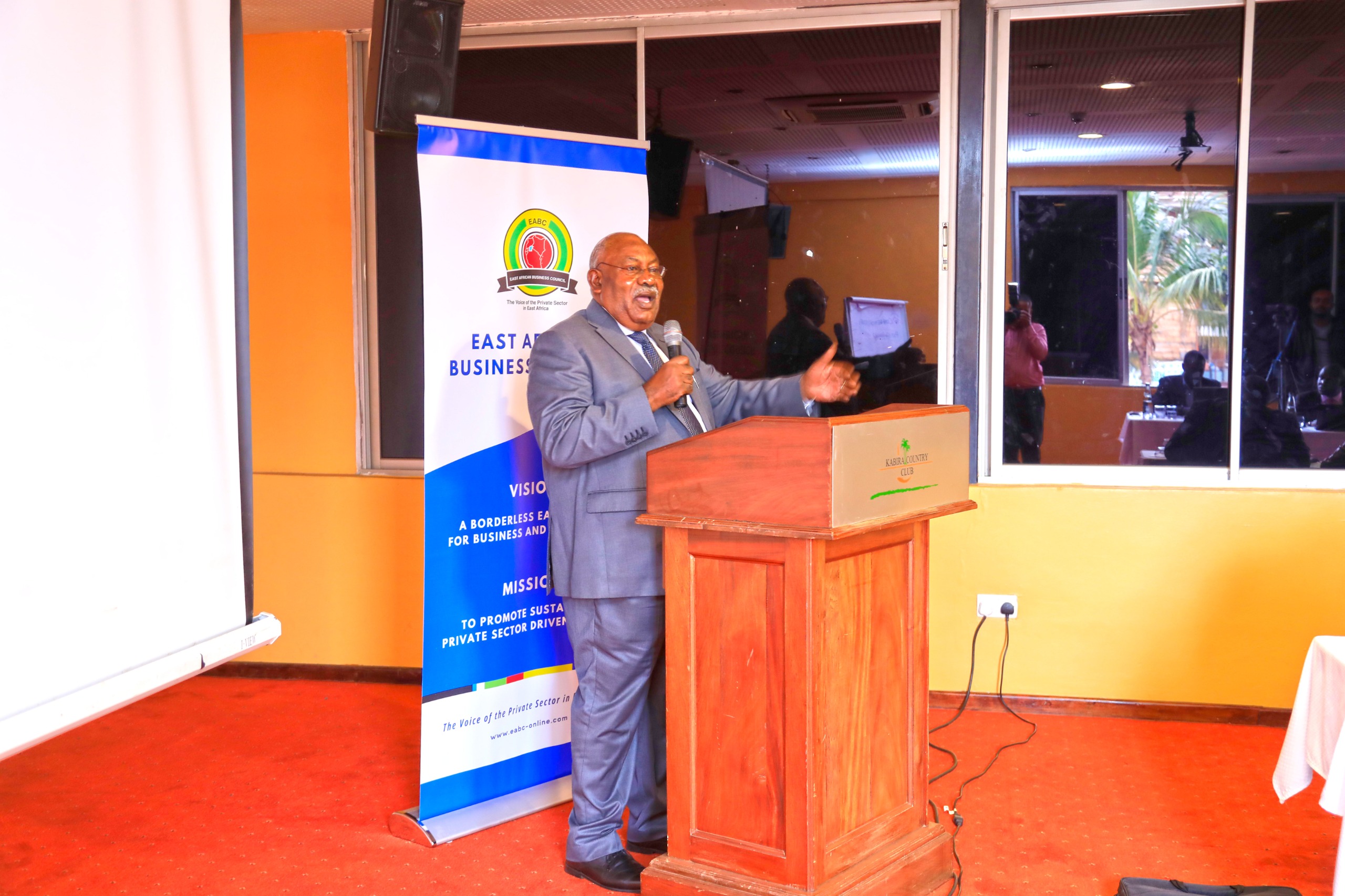

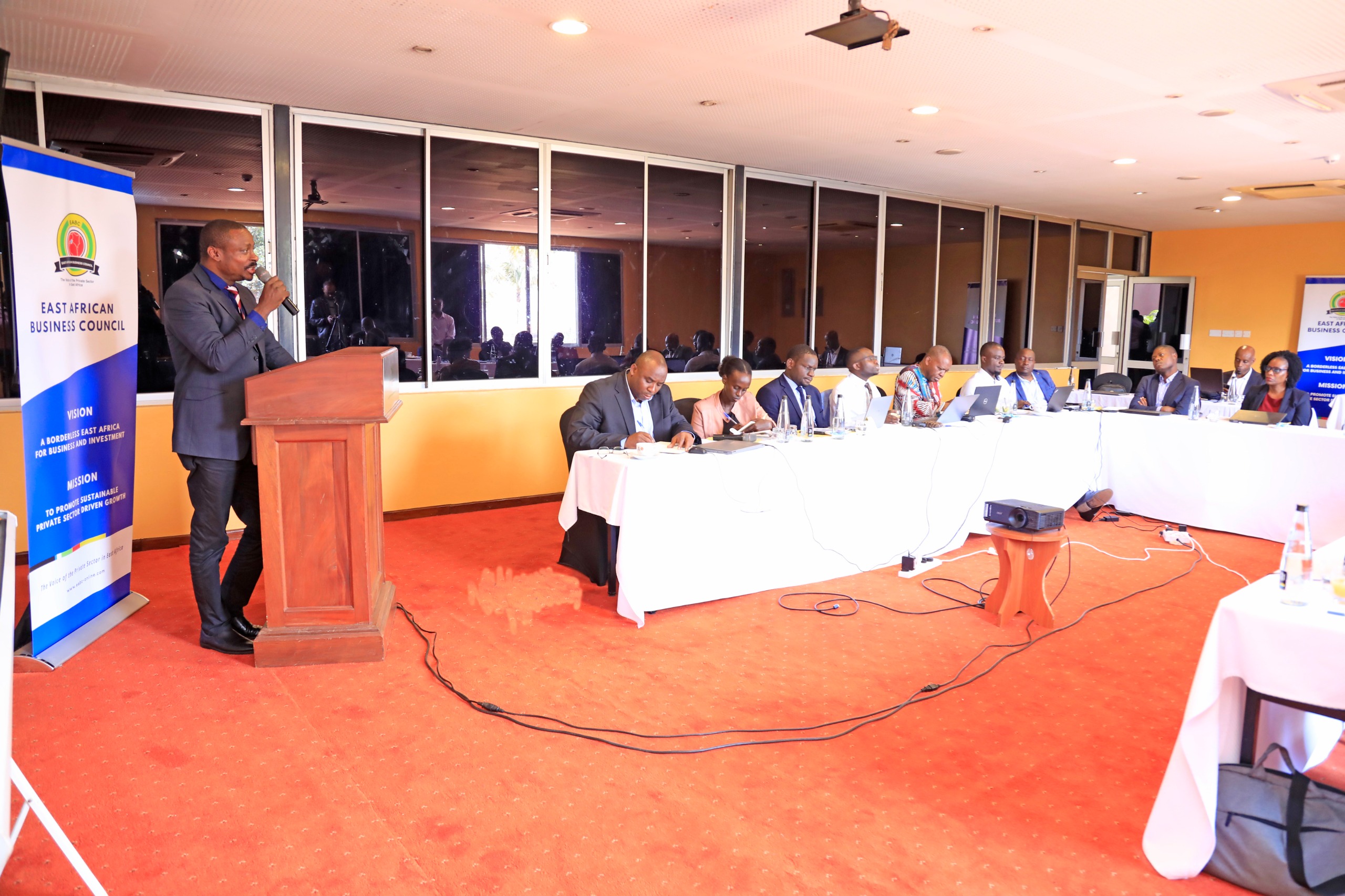

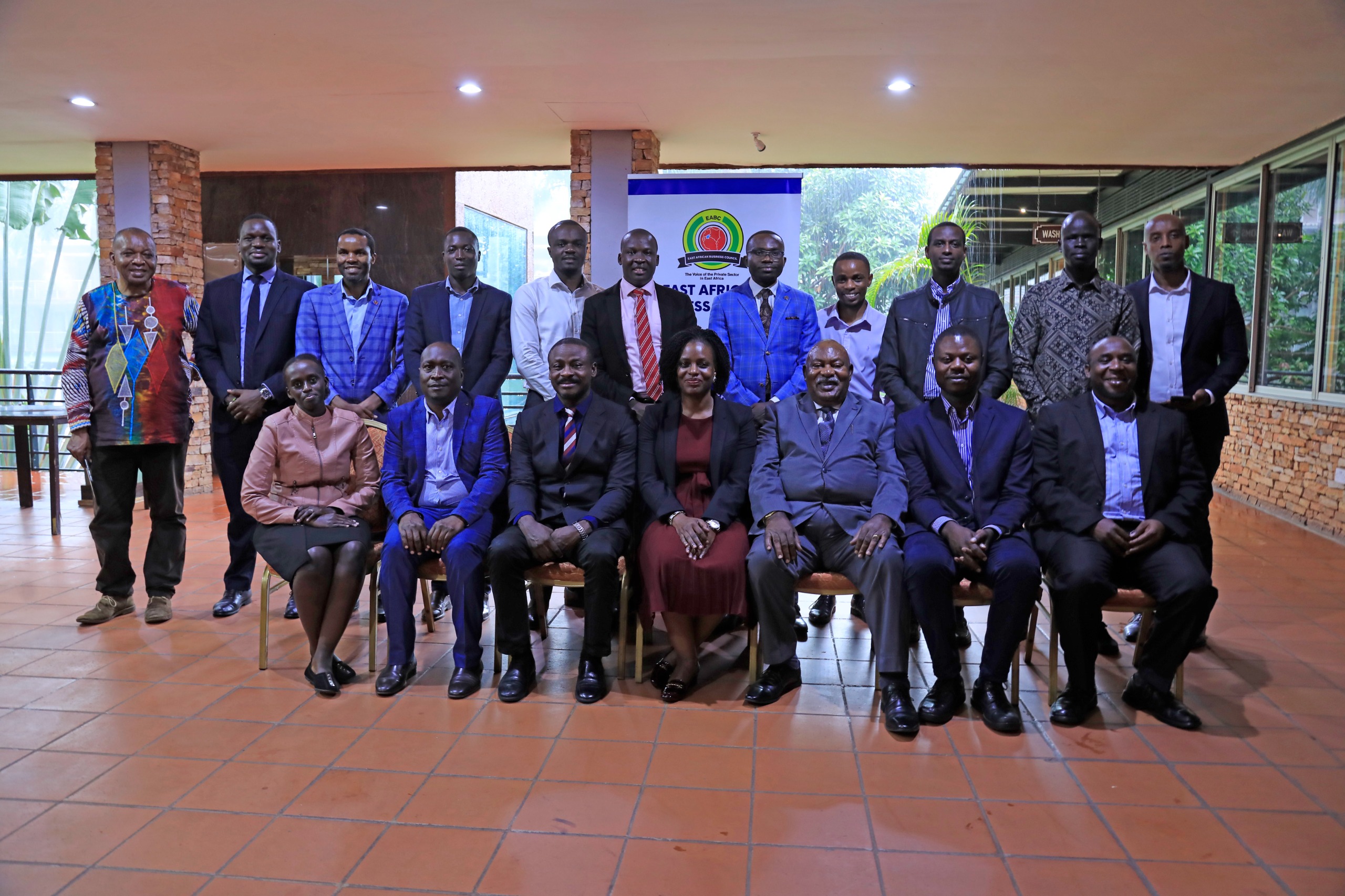

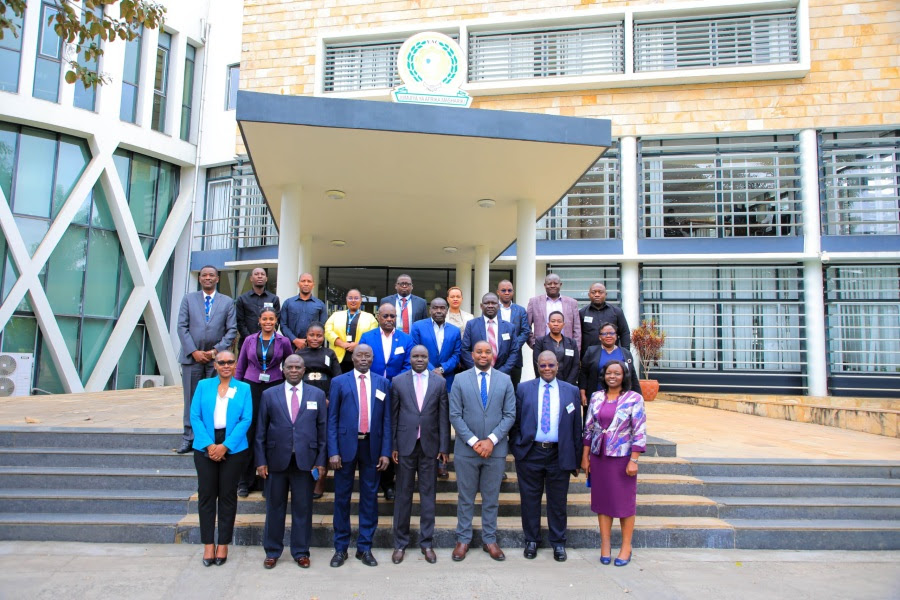

East African Community Headquarters, Arusha, Tanzania, 23rd August, 2024: The East African Community (EAC) Deputy Secretary General in charge of Infrastructure, Productive, Social and Political Sectors, Hon. Andrea Aguer Ariik, has urged EAC Partner States to expedite the signing of the EAC Air Transport Market (Liberalisation) Regulations as part of efforts to enhance regional integration and stimulate economic growth in East Africa.
Hon. Ariik’s plea comes in the wake of concluded development of the Regulations for Liberalisation of the Air Transport Market in the EAC Region. The regulations are expected to be submitted to the 19th Meeting of EAC Sectoral Council on Transport, Communication and Meteorology (SC-TCM) for adoption.
Speaking during the 19th Meeting of Directors General of Civil Aviation and Airports Authorities at the EAC headquarters in Arusha, Tanzania, the Deputy Secretary General said once adopted by the SC-TCM and thereafter signed and ratified by the Partner States, the air transport market in the EAC will be fully liberalised, adding that Partner States will subsequently negotiate their Regional Air Transport Bilateral arrangements under the Multilateral Air Services Agreement.
The liberalisation of the air transport market in the region is expected to lower the cost of air fares, stimulate demand for air traffic, connectivity, increase operation efficiency, reduce the flying time and support the expansion of air transport capacities and the regional economy.
The Deputy Secretary General said that liberalisation of air transport within the EAC would not only facilitate easier movement of people and goods but also boost tourism and trade among member states.
“An integrated air transport market is essential for the development of our region. By removing barriers to air travel, we can enhance competitiveness and attract investment in the region,” said Hon. Ariik.
The Deputy Secretary General urged the meeting to look into the possibility of harmonising the current regulatory fee and charges in the region under the spirit of the EAC Common Market Protocol, and to consider and designate the EAC Air Transport Market a domestic for EAC national registered air operators operating within EAC territory and apply charges applicable to domestic parties and eventually lower passenger tariffs.
“The cost of air fares in the region has caused a public outcry that needs to be addressed,” he added.
Hon. Ariik further urged the Directors General of Civil Aviation Authorities in the region to implement the agreed programmes and projects within their domain including the ratification of model regulations to foster the development and integration of the Civil Aviation and Air Transport industry in the EAC Region.
On the modalities for reducing regional air fares, Hon. Ariik revealed that the EAC Secretariat in collaboration with Partner States has developed strategies and possible mechanisms that can be considered to lower the cost of air fares including the proposal to formulate national consultative committees by Partner States to guide national consultation exercise as directed by the 17th TCM.
The Deputy Secretary General disclosed the Republic of Burundi and the Republic of Rwanda have submitted their reports after their national consultations to the EAC Secretariat, even as he called upon the other Partner States to do the same.
Hon. Ariik urged Partner States to prioritise the establishment of conducive environments for airlines to operate and expand their services regionally. “We cannot afford to lag behind in an era where the aviation industry is rapidly evolving,” said the Deputy Secretary General.
He reaffirmed the Secretariats commitment to facilitating the necessary discussions and providing support to Partner States in their efforts to achieve a liberalised and integrated air transport market.
The 19th Meeting of the Heads of Civil Aviation and Airports Authorities is being convened as the a follow up of the implementation of directives and recommendations of the 18th Meeting of the Heads of Civil Aviation and Airports Authorities held in January 2023 in Arusha, Tanzania.
The purpose of this meeting therefore is to consider the implementation of the Civil Aviation programmes for the period from February 2023 to June 2024.
Source :
Corporate Communications and Public Affairs Department
EAC Secretariat
Arusha, Tanzania
http://www.eac.int